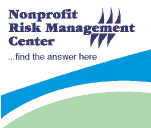 |
 |
|
|
|
February 14, 2007
Fact Sheet on Board Minutes
Accurate board minutes are an important resource to governing and advisory boards of public and private organizations. Minutes also support sound risk management by providing a written record of board deliberations and decisions. Board minutes provide evidence that a board has exercised care in decision making. Board minutes also substantiate that a board is operating in accordance with legal requirements, including the organization’s own rules (found in its Bylaws and other documents) and rules established by regulatory agencies (including the secretary of state in which the organization operates) or other oversight bodies.
Despite the importance of board minutes, many organizations continue to make inadequate records of board meetings. The most common mistake made is the tendency to record too much—from casual but inconsequential statements made during the meeting to the ultimate mistake of recording every spoken word.
Appropriate board minutes should contain the following:
- The names of those members who are present and who are absent.
- The time the board meeting begins and ends.
- The existence or absence of a quorum.
- A concise summary of the action taken by the board.
- The names of the persons making and seconding motions.
- A summary of votes, indicating when motions were adopted by unanimous votes or the breakdown in yeas and nays and abstentions.
- A summary of documents introduced during the meeting.
- A summary of discussion points—concise statements of the issues raised and concerns reflected during the discussion.
- A summary of key action items, future steps, and who will take them.
- The name and title of the person responsible for taking minutes.
Minute Taking “Don’ts”:
- Minutes should never be a verbatim documentation of every statement made during a board meeting. A document that purports to record every uttered word is a transcript, not “minutes.”
- Minutes should be concise and informative, but never voluminous. Minutes that require more than 15 minutes’ reading are of little (or no) value to the staff and volunteer leaders of an organization.
- Minutes should be taken by someone who understands the substance of the issues being discussed. This is necessary to reflect, in a concise manner, the key points made during the meeting. A sound grasp of the issues facing the organization is also necessary to discern “chatter” that need not be included versus actions taken that should constitute the bulk of the minutes.
For more information on board accountability, please look at Pillars of Accountability: A Risk Management Guide for Nonprofit Boards. Topics included in this publication are:
- Ethical Fundraising
- Strategic Risk Management
- Fiscal Integrity
- Leadership Sustainability and
- Sound Employment Practices
Pillars of Accountability
Price $12.00 plus shipping and handling.
For the free companion assessment tool, Pillars of Accountability in the Nonprofit World, click here. |
|
 |
New Look, New Name, Same Great Content!
|
The Community Risk Management & Insurance newsletter that you've relied on
for its great content for 14 years has a new name: Risk Management
Essentials, and a new appearance to deliver Tips, Knowledge and Tools for Nonprofit Organizations three times a year. Click here to view the
newsletter
|
 |

|
 |
 |
|


